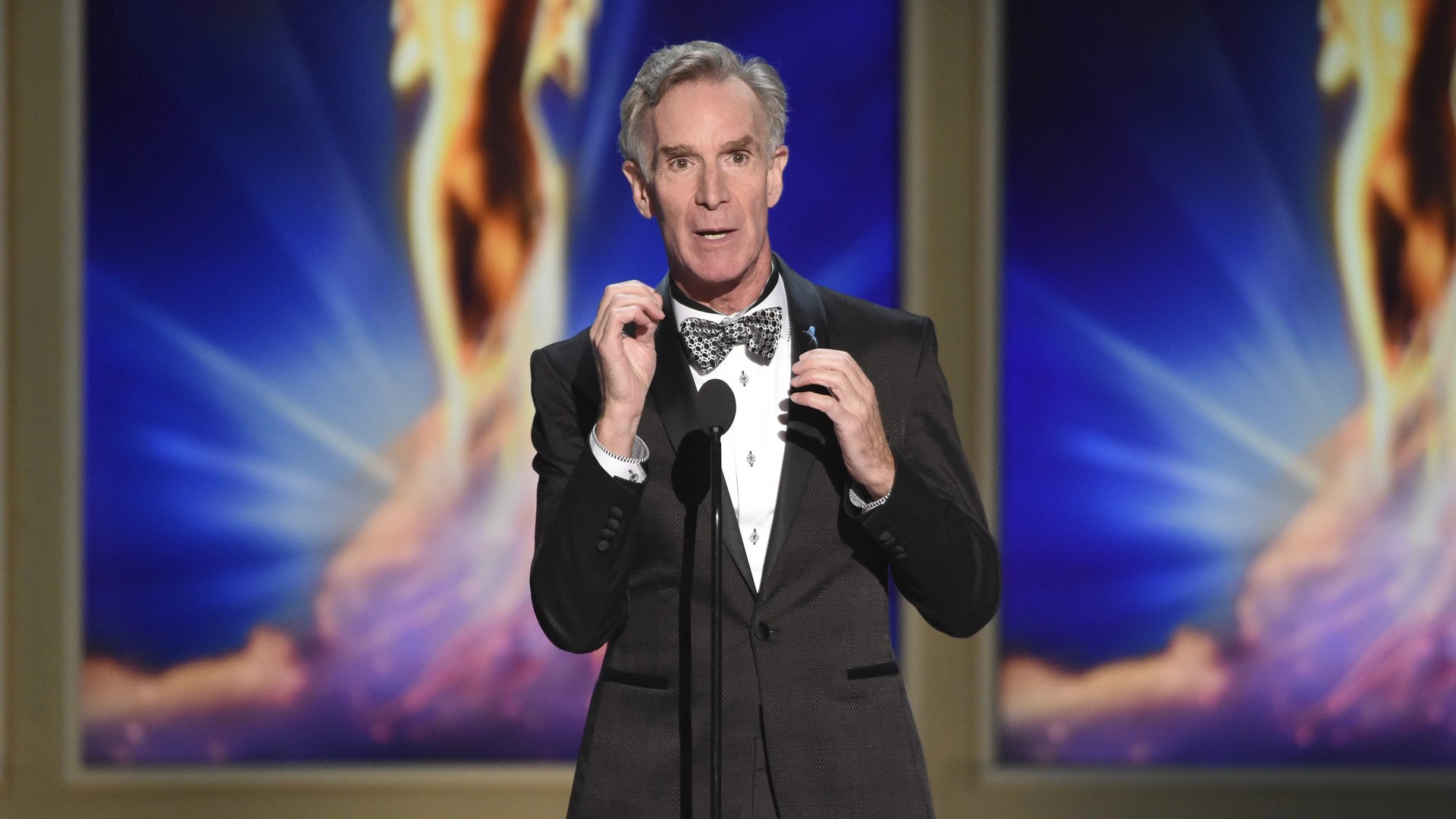Bill Nye wants you to remember it’s still the best time to be alive
The world has changed a lot since Bill Nye the Science Guy launched more than two decades ago.


The world has changed a lot since Bill Nye the Science Guy launched more than two decades ago.
His show, a staple of public TV for millennials growing up in the US, bestowed a fierce form of open-minded optimism on young viewers. Bill Nye said we could grow up to be anything we wanted—and we had a real shot at making the world a better place.
Today, there are a lot of reasons—mostly omnipresent climate anxiety colored with flecks of outrage over current events—to feel like circumstances are beyond our control. And yet, the Science Guy still believes there are reasons to have hope.
“As messed up as things seem to be, this is still the best time to be born for most people,” Nye told Quartz in a June 8 interview at the National Press Club.
The numbers back up Bill Nye
By most measures of well-being, humans are doing great. Thanks to innovations in agriculture, we’ve been able to largely feed more than 7.5 billion people—despite fears of overpopulation dating from the 1960s. Medical breakthroughs have raised five-year survival rates for even the grimmest conditions. Lifespans have lengthened so much that aging is now considered a global economic risk by G20 officials.
Steven Pinker, a Harvard psychologist, makes this same argument in his latest book, Enlightenment Now, which is full of data points that highlight progress. Despite war, outbreaks of mass violence, and climate change, the overall trend is going toward better living. Intelligence quotients and literacy rates are rising. Households are gaining wealth while spending less on basic needs. “Remember your history: The fact that something is bad today doesn’t mean it was better in the past,” he writes.
Still, that does’t mean that the world as we know it is guaranteed to get better. Climate change, Nye argues, is our most dire threat. We need to figure out how to continue to innovate farming to accommodate even more mouths in a warming world. If climate change and conflict continue displacing populations, global health will deteriorate, Nye argues: “You can’t have economic upheaval and displaced populations, and then have good public health.”
Young people can make the change
The good news: Young people are paying attention. As global leaders continue to make choices that jeopardize continued progress, you have to look pretty hard to find someone under 25 who denies climate change, Nye said.
He was visiting his hometown of DC to congratulate the winners of ExploraVision, a science contest that spans the US and Canada. More than half of the entrants were trying to solve problems related to climate change. The others tackled problems related to issues like public health and exploration—both of which are also important for bettering the global quality of life.
There are even more reasons to be optimistic, Nye said. Look at those who have yet to enter the workforce. They can’t solve scientific problems alone, of course—they need resources and access to affordable, quality education. Nye is optimistic that they can do it if given the chance. This was the main reason he and others created Science Guy two decades ago. “I was very concerned about the future, and I wanted to get young people excited about the science so the future would have more scientists,” he said.
Optimism is key to moving forward, he said: “If you’re not optimistic it’s really unlikely that you’ll accomplish anything.”